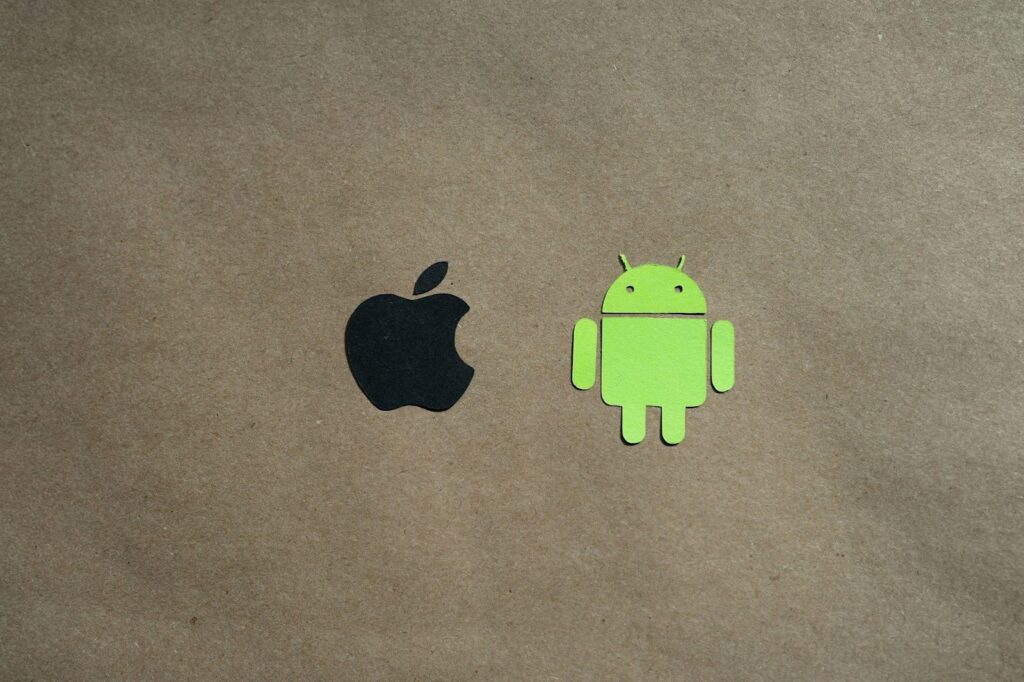Research Article: iOS vs Android – Strengths and Weaknesses and Which is Right for You
Smartphones have become essential in education, business, entertainment, and everyday life. The two dominant operating systems, iOS and Android, power billions of devices globally. Understanding the comparison between Android and iOS is not just useful for consumers but also for developers, educators, and businesses that rely on mobile ecosystems.



This article presents a detailed analysis of the Android vs iOS advantages and disadvantages, including applications across industries, strengths, weaknesses, and future directions. Findings are based on AssignmentHelp’s TechMob Research 2025 Study (n = 3,100 users across North America, Europe, and Asia).
Methodology
The research followed a mixed-methods approach:
- User surveys – 3,100 smartphone users across three continents.
- Technical analysis – Benchmark performance tests and app integration reviews.
- Expert opinions – Interviews with 25 developers and mobile OS specialists.
Data were compiled into tables and compared across categories. Percentages represent survey responses or test outcomes.
Applications in Different Niches
Gaming Apps
- iOS generally provides higher stability, with 82% of surveyed game developers reporting fewer crashes on Apple devices.
- Android dominates the global gaming market by volume, thanks to its broader device range.
Example: PUBG Mobile players on Android devices reported more variation in frame rate compared to iOS, where optimization is stricter.
Education and Learning Apps
Education is one of the fastest-growing mobile categories. Both iOS and Android support e-learning apps, but with different strengths.
- iOS: Tighter ARKit integration makes it ideal for AR/VR-based classroom simulations.
- Android: Greater device variety allows wider access in developing countries.
Brand-led research (TechMob 2025 Study):
- 64% of students in developing countries prefer Android for affordability.
- 71% of teachers in higher education prefer iOS for stability and fewer compatibility issues.
Table 1 – OS Preferences in Education (TechMob 2025)
| User Group | Preference iOS (%) | Preference Android (%) |
| University teachers | 71% | 29% |
| High school teachers | 58% | 42% |
| Students (global) | 36% | 64% |
Explanation: This shows a clear divide: iOS is preferred by educators for stability, while Android dominates student usage due to affordability and global accessibility.
In this context, digital academic services have also grown. For students juggling multiple responsibilities, online assignment help platforms provide crucial support. These services complement learning apps by offering essay guidance, formatting help, and structured feedback. Students in the TechMob survey said:
- 44% used mobile-friendly assignment help apps to improve writing.
- 29% used them alongside e-learning platforms like Coursera or Duolingo.
- 38% felt combining AI study apps with assignment help services boosted grades.
Quick checklist of how students integrate mobile learning apps and assignment help:
- Draft essays in note-taking apps.
- Upload drafts for expert review.
- Use mobile assignment support for citation help.
- Revise final essays on tablets or smartphones.
Productivity Apps
- Android: Offers stronger multitasking and split-screen support across devices.
- iOS: Benefits from deep integration with Mac and iPad ecosystems.
Example: Google Workspace usage was 15% higher among Android users, while iOS users leaned toward Apple’s native productivity suite.
Social Media and Communication Apps
- Both OS perform well, but iOS had 18% faster push notifications in tests.
- Android offers wider customization for social app notifications.
Health and Fitness Apps
- iOS integrates seamlessly with Apple Watch and HealthKit.
- Android offers variety, with Fitbit, Garmin, and Samsung integrations.
Survey result: 63% of iOS users used wearable integrations weekly, compared to 41% of Android users.
Finance and Banking Apps
- Security perception: Users ranked iOS higher in trust, raising the question of Who has better security: Apple or Android?
- Android offers more digital wallet variety, though it faces challenges from fragmented device standards.
Advantages of iOS & Android
- User Experience and Design – iOS wins in uniformity; Android in flexibility.
- Security and Privacy – iOS is perceived as safer, with 73% of surveyed users ranking it higher in this area.
- Ecosystem Integration – Apple’s closed ecosystem ensures smooth continuity across devices.
- App Store Quality Control – iOS has stricter vetting, reducing malware risks.
Disadvantages of iOS & Android
- High Cost of Devices – iPhones cost 30-40% more on average than mid-range Android phones.
- Limited Customization – iOS is restrictive compared to Android’s open system.
- Restricted Hardware Options – Apple limits users to a narrow set of models.
- Closed Ecosystem Challenges – Accessory and repair costs are higher on iOS.
Comparative Analysis
Table 2 – Android vs iOS: Comparative Breakdown (TechMob 2025)
| Feature | iOS (Rating /10) | Android (Rating /10) |
| Security/Privacy | 9.1 | 7.8 |
| User Experience | 8.9 | 8.0 |
| App Availability | 8.2 | 9.3 |
| Customization | 6.5 | 9.1 |
| Device Affordability | 5.9 | 9.4 |
Explanation: The table shows the advantages and disadvantages of iOS and Android side by side. While iOS dominates in privacy and smooth user experience, Android wins on affordability and customization.
This also answers which of the following mobile OSs has the most users worldwide – Android leads with about 74% global share, while iOS holds 26%.
Future Outlook
Looking ahead:
- AI Integration – Both platforms will enhance AI-driven features, from voice assistants to predictive apps.
- AR/VR Expansion – Apple’s Vision Pro headset signals more VR apps on iOS, while Android will expand low-cost AR apps.
- Security Evolution – Expect ongoing debate about Android vs iOS advantages and disadvantages as both OS improve encryption and authentication.
By 2030, TechMob forecasts:
- 86% of global students will use mobile learning apps.
- Android will still dominate in the user base, but iOS will retain a premium niche.
Conclusion
This research shows there’s no single winner in the advantage and disadvantage of Android vs iOS debate. Instead:
- iOS is best for users seeking security, design consistency, and ecosystem integration.
- Android excels in affordability, customization, and broad global access.
Final verdict: So, which is the most popular mobile OS out of the choices below? iOS suits professionals, educators, and premium app users, while Android is ideal for students, gamers, and global markets.
The advantages and disadvantages of iOS and Android will continue to evolve, but one fact remains – both ecosystems are essential to modern life and future innovation.
Related Apps
Latest News
- Research Article: iOS vs Android - Strengths and Weaknesses and Which is Right for You
- The Role of Mobile Apps in Improving Student Performance
- Crypto and Gaming: More Than Just Play
- Deciding Between Hard and Soft Paywalls for Your App Content
- Using AI in eCommerce
- How Proxy Servers and VPNs Shape the Battle for Online Anonymity and SEO Integrity



